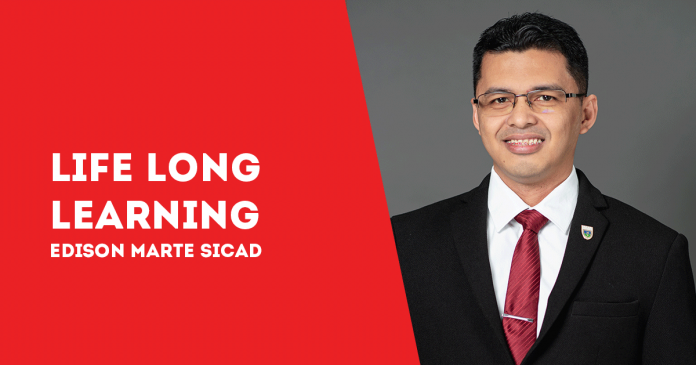
BY EDISON MARTE SICAD
“The inconspicuous birth of the Son of Man is celebrated in dizzying revelry by Modern Man.” -EMS
CHRISTIAN traditions and celebrations, despite being spiritual in essence, are still culturally enriched (or embellished). Unfortunately, the simplicity of the Nativity transmogrifies into an atavistic practice, which gives credence (ironically) to the saying “What is new and trending is acceptable for it gives more meaning to what is old and traditional.”
In other words, the signs of the times make the profundity of the message relevant and stable.
And so, it remains to the faithful as to what to make of it when a priest tried to make the Gospel more relevant (and entertaining) by dancing to “Ting Ting Tang Tang” with his sacristans as backup dancers and the tabernacle as the background.
DOMINE QUO VADIS? (Christ’s response to Peter may be more relevant now putting into context what happened in that church in Danao City, Cebu).
My Christmas break led me into these thoughts because of Dostoevsky: the writer—also a philosopher—who gave me a literary equivalent of the calm before the storm. Literary because I somehow have the time to read more books before I give attention to my area of responsibilities.
Why Dostoevsky?
“Who, being in very nature God, did not consider equality with God something to be used to his own advantage; rather, he made himself nothing by taking the very nature of a servant, being made in human likeness. And being found in appearance as a man, he humbled himself by becoming obedient to death—even death on a cross!” (Philippians 2:6-8 New International Version)
Imagine meeting a man who speaks the whole truth. Diogenes of Sinope carried a lantern in the daytime looking for an honest man in ancient Athens. I wonder what will happen to him if he does that now, going from office to office, house to house, church to church. The lantern may not be enough. And he may be just shot to death for being too intrusive.
And reading Dostoevsky gives me this realization that maybe—just maybe—Modern Man cannot handle the Truth. For the Truth might entail suffering. And suffering, like honesty needed a standard that goes beyond human understanding.
For ultimately, the meaning—and value—of life, more than reasoning or critical thinking, requires faith and obedience to something nobler, some goal that is beyond human happiness and merriment. And for Dostoevsky, that goal is God.
“If God does not exist, then everything is permitted.” –Dostoevsky
Dostoevsky himself draws strength from his sufferings—injustice if you will. Not to blame God for our misfortunes and not to forget God in fulfilling our ambitions, but to live and do things with responsibility and intend human actions with the touch of eternity.
My adulting is enriched by my readings. And I realized that adulting is also about filling up the spiritual vacuum of understanding. The problem of grown-ups is that we need to understand to be happy. Children do not have such need. They can be happy for whatever reason. Maybe this is because growing up makes us aware that we live in a world that cannot fully be explained, not even by the great writers. But it is in reading—and writing—that they were able to wrestle with the issue.
That behind the repetitive mundane tasks, the ephemeral, transitory experiences, the fickleness of relationships, we long for something that is eternal, forever, and universal. And maybe this is where the meaning dwells. And this is the symbol, the message of Christmas in the manger: Happiness is still in the purity of love, in the intention of actions, where Dostoevsky not only find his strength but is the force itself of his life.
And that’s why I advocate reading. For reading, like life, is a personal journey. Only you can really “read it”. Only you can experience your life.
IN CLOSING, having a reading plan or list is a call for solitude—even isolation. Maybe another meaning for the Word made flesh and dwelt amongst us.
Happy Reading. Merry and Christmas. And it is my wish that you will have your own reading list./PN

